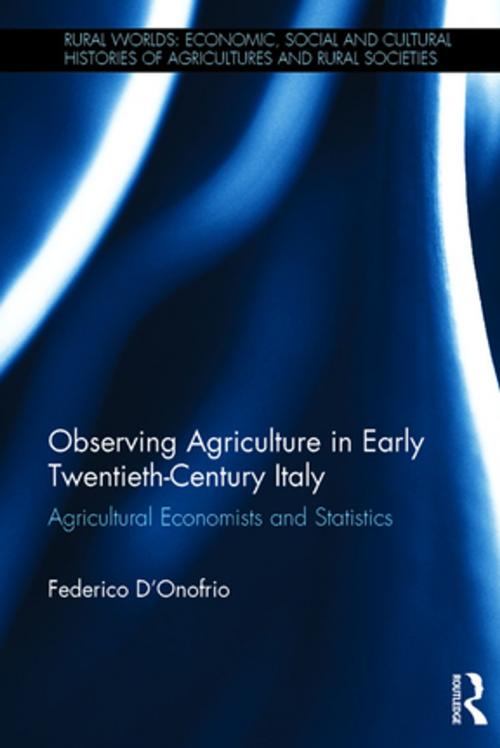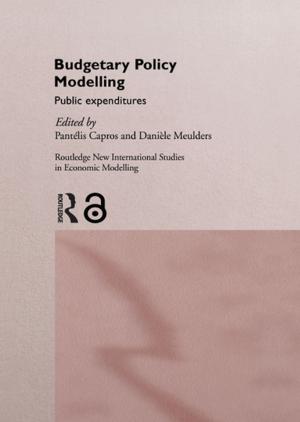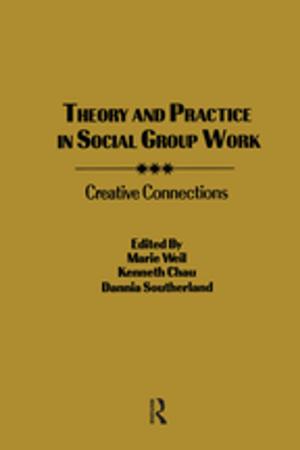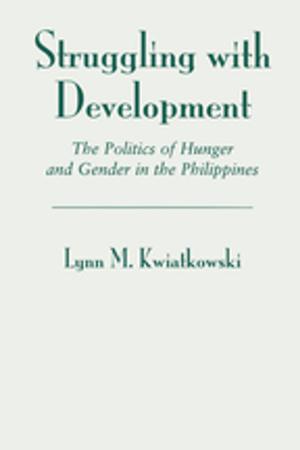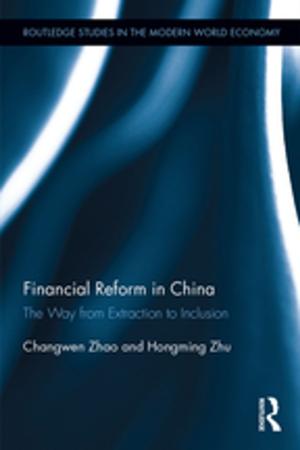Observing Agriculture in Early Twentieth-Century Italy
Agricultural economists and statistics
Nonfiction, History| Author: | Federico D'Onofrio | ISBN: | 9781317183570 |
| Publisher: | Taylor and Francis | Publication: | May 20, 2016 |
| Imprint: | Routledge | Language: | English |
| Author: | Federico D'Onofrio |
| ISBN: | 9781317183570 |
| Publisher: | Taylor and Francis |
| Publication: | May 20, 2016 |
| Imprint: | Routledge |
| Language: | English |
Agricultural Economists in Early Twentieth-Century Italy describes how Italian agricultural economists collected information about the economy of Italy, between the Giolittian and the Fascist era. The book carefully describes three main forms of economic observation: enquiries, statistics, and farm surveys. For each of these forms of observation, the main participants to the investigation are discussed with their respective agendas, alongside the purposes of the investigation, and its practical constraints. This work introduces the concept of "stakeholder statistics", and stresses the two-way relation between the observer and the observed in the co-production of observational knowledge. Practices of observation developed together with agricultural economics as a discipline and a profession. The study of forms of investigation therefore shed light on the constitution of a coherent and self-conscious group of agricultural economists in Italy, and the scientific and methodological alliances they forged with agricultural economists elsewhere in Europe. Thanks to ambitious research projects, Ghino Valenti in the Giolittian period, and Arrigo Serpieri, after the First World War, led the transformation of Italian agricultural economists from agents of estate owners, to social and economic experts in the service of the Italian state. The group of agricultural economists who gathered around Serpieri played an important role in supplying the ideology of the agricultural elites with economic content, especially after the First World War, along lines that resemble the development of agrarian ideologies in other countries of Central Europe. This work discusses how observation entered the political debate on agricultural policies of the Fascist regime, namely the so-called Ruralismo.
Agricultural Economists in Early Twentieth-Century Italy describes how Italian agricultural economists collected information about the economy of Italy, between the Giolittian and the Fascist era. The book carefully describes three main forms of economic observation: enquiries, statistics, and farm surveys. For each of these forms of observation, the main participants to the investigation are discussed with their respective agendas, alongside the purposes of the investigation, and its practical constraints. This work introduces the concept of "stakeholder statistics", and stresses the two-way relation between the observer and the observed in the co-production of observational knowledge. Practices of observation developed together with agricultural economics as a discipline and a profession. The study of forms of investigation therefore shed light on the constitution of a coherent and self-conscious group of agricultural economists in Italy, and the scientific and methodological alliances they forged with agricultural economists elsewhere in Europe. Thanks to ambitious research projects, Ghino Valenti in the Giolittian period, and Arrigo Serpieri, after the First World War, led the transformation of Italian agricultural economists from agents of estate owners, to social and economic experts in the service of the Italian state. The group of agricultural economists who gathered around Serpieri played an important role in supplying the ideology of the agricultural elites with economic content, especially after the First World War, along lines that resemble the development of agrarian ideologies in other countries of Central Europe. This work discusses how observation entered the political debate on agricultural policies of the Fascist regime, namely the so-called Ruralismo.
